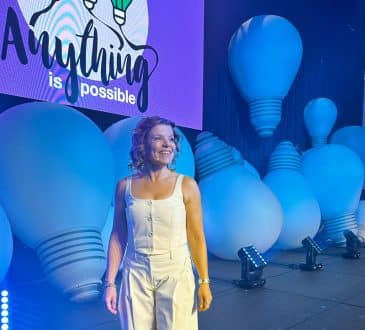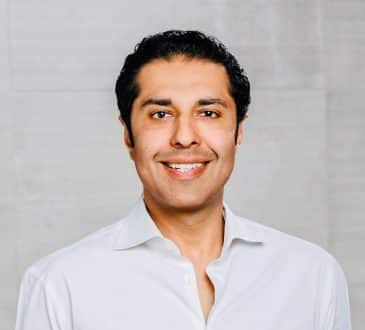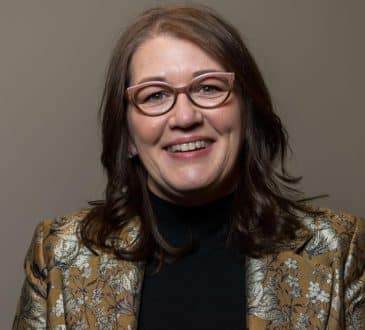Out of The Box: Optimizing Decision Making For Personal and Professional Prosperity In a Relentlessly VUCA World

To Thrive in Work and Life: Lenny was a business owner who died of a stroke when he was 42 years old. I was 15 years old and, since I was grounded at the time for speaking truth to power again, I was pretty sure my father died of me.
It was not until years later when I finally broke down with my mother about how all my fault it was that I found out it wasn’t me after all. In her shining moment as a mom, my mother said tenderly, “No honey, it wasn’t you. It was work.”
The Japanese call it Karoshi, death by overwork; sometimes by suicide, heart attack, or stroke. In my father’s case, it may have been a biological event waiting to happen, or, okay fine, maybe a little bit of me…or maybe it really was death by overwork.
To whatever extent it was work—my father was only one of the 120,000 work-stress-related deaths per year in the US, and the roughly 750,000 throughout the world.
No surprise, I now help professionals, executives, and entrepreneurs thrive in work and life.
And here is some of what I have learned along the way.
Optimizing Decision Making
The average adult makes 35,000 decisions every day, not all of them affecting as many lives, and in such magnitude, as the decisions our leaders worry about.
Forbes recently suggested that decision making effectiveness be at the top of every company’s agenda. Great idea for this crazy VUCA (volatile, uncertain, complex, and ambiguous) world in which we live.
Even better, what if we put decision making effectiveness at the top of every individual leader’s agenda too. At 35,000 decisions a day, getting better at that would have to help with the Decision Fatigue depleting our lives.
So, how can leaders get better at this critical life skill? By getting Out of The Box.
Out of The Box
Life is a story we live in. And so is business. Here’s how that works.
The human sense organs send 11,000,000 bits of information to the brain every second—which we mistakenly think of as reality—when it is really only a drop in the bucket of the 6 × 10^80 (or 6 followed by 71 million zeros) bits out there in the universe for our senses to pluck from.
Alas, our brains have to make some sense out of this limited information or we would feel crazy and unable to function. So, we make up a story, and that is the box!
The brain draws on past experiences, future desires, basic human fears, assumptions… to add, subtract, and piece together bits of information into some semblance of a reality that is not reality at all.
Letting that huge gap between perception and reality sink all the way in makes way for two ‘Out of The Box’ ways of doing our business in the world, which are detailed below.
- Faster, Bolder Decision Making and Implementation
There is a wonderful tale about Buridan’s Ass. Jean Buridan was a 14th century French philosopher, who built on an idea held by Aristotle, later employed by Edward Fredkin, a pioneer of digital physics, to make the point known as “Fredkin’s Paradox,” which is: “The more equally attractive two alternatives seem, the harder it can be to choose between them—no matter that, to the same degree, the choice can only matter less.” Here below is the donkey who, because he could not figure out which bale of hay was going to turn out to be the best, waited for more perfect information to arrive—and in so doing starved to death.Buridan’s donkey (Image courtesy: Buridan’s donkey between two piles of hay, faced with the dilemma by Wolfgang Bietenholz/FILE PHOTO.) It is not uncommon for leadership to hold out for more perfect information on the decisions that feel the hardest.
But successful CEO’s get that the reason the decision is so hard in the first place is that there is roughly equal threat/opportunity either way, as Fredkin suggested. And, they know that there is no such thing as perfect information anyway.
The only one who really appreciates a leader’s indecisiveness is the competition. In fact, one study showed that 66% of participants refused to follow people who appeared to be hesitating.
Bear in mind that, even if there is new information to be had, Stanford research suggests that the longer we go back and forth, the more fatigued we are, and the less able we are to process new information regardless.
Sometimes humans just love their comfort zones too much. But this study found participants happier down the line when they went for bigger and bolder decisions rather than preserving their status quo.
And, this Yale study found that problem solving is optimized 70% outside of our comfort zones, where new learning takes place to fuel our action.
That’s right. The courage to act! As William James said: Action may not always bring happiness, but there is no happiness without action.
But this does not mean that leaders act alone. Quite the contrary. And this brings us to the second Out of The Box way to better conduct our business in the world.
- The Cure for CEO Disease
Not only are we each living in a story that can be no more than a semblance of reality, but there is evidence that our human intelligence appears to be falling. This means we may be making life shaping decisions with even less intelligence than we used to have. Leaders who delude themselves into thinking they know more than they can and do—CEO overconfidence—have been found to show less ability and poorer performance. CEO overconfidence is also known as CEO Disease. So, what is CEO Disease and what is the cure? According to Professor of Leadership, Katleen De Stobbeleir: “The term refers to the phenomenon of many leaders living in what is known as a ‘feedback vacuum’.” Stobbeleir adds that, although it is not a real disease per se, leaders being stuck in their own heads (stuck in the box!) is why many businesses fail. And this problem is not all on the CEOs because employees have reasons of their own to step away from telling the emperor he has no clothes, and is making a fool of himself.Couple leadership’s FOFO (fear of finding out what they may not want to know) with the reluctance of others to tangle with leadership’s ego—and we have a recipe for disaster for everyone involved.
Let’s consider a case for a possible remedy.
The Case of Rob
Rob was a company director being considered for the C-Suite, pending some professional development work for his apparent anger issues at work.
We discovered together that Rob lives in a story or opinion about how, as a younger boy, he could have made much better decisions on how to run the family than either of his parents.
Fast forward to present day, Rob was still trying, relentlessly and unsuccessfully, to convince the people in charge to open their minds to trying things his way.
One day I explained to Rob that adult humans often relive their early issues at work as a way to try to master a situation that it was not possible to master when they were young.
I added that he could continue to bang his head against the brick wall (of CEO Disease?)—or if he really thinks he knows better he could leave and start his own company—which he did.
Importantly, however, Rob did not want to have CEO Disease himself, and carefully chose talented partners, whose ideas he respects and admires. Business is good. And so are Rob (who had a stroke before I met him) and his family (including his teenage daughter who reminds me of me).
Moving Forward
By Out of The Box, I mean out of one’s own story, out of one’s own head. I mean escaping the confines of thinking we know everything there is to know, or worse, believing that we ever can and waiting, stuck in our heads, until we do, which never comes.
My father made a promise to his mother on her deathbed that he would take care of the family business. But I doubt that his story about what that meant was what she intended for him. And even if someone had told him then to take it easier, it is not so clear from what I remember that my dear father would have let in much of anything on this than was already in his head.
But we can. We all can. We can leap Out of The Box with the courage to act even though we cannot know all there is to know. And we can leap Out of The Box to join with others who can see some of what we cannot—to optimize our decision making so our businesses, our leaders, and everyone counting on them can prosper nonetheless in this VUCA world of ours.
Written by Madelaine Claire Weiss.
Have you read?
Investor Daniel Calugar Explains High-Frequency Trading: The Pros and Cons.
Coastal Kapital Expands With A New Location.
Email Personalization: The Forgotten Art of Making People Feel Heard by Melissa Pekel.
Patricia Derrick’s Brainpaths Devices – Improving Memory and Cognitive Function by Stimulating the Sensory Cortex.
11 Ways to Lead with Humility and Pride by Joy Fitzgerald.
Add CEOWORLD magazine to your Google News feed.
Follow CEOWORLD magazine headlines on: Google News, LinkedIn, Twitter, and Facebook.
This report/news/ranking/statistics has been prepared only for general guidance on matters of interest and does not constitute professional advice. You should not act upon the information contained in this publication without obtaining specific professional advice. No representation or warranty (express or implied) is given as to the accuracy or completeness of the information contained in this publication, and, to the extent permitted by law, CEOWORLD magazine does not accept or assume any liability, responsibility or duty of care for any consequences of you or anyone else acting, or refraining to act, in reliance on the information contained in this publication or for any decision based on it.
Copyright 2024 The CEOWORLD magazine. All rights reserved. This material (and any extract from it) must not be copied, redistributed or placed on any website, without CEOWORLD magazine' prior written consent. For media queries, please contact: info@ceoworld.biz
SUBSCRIBE NEWSLETTER









